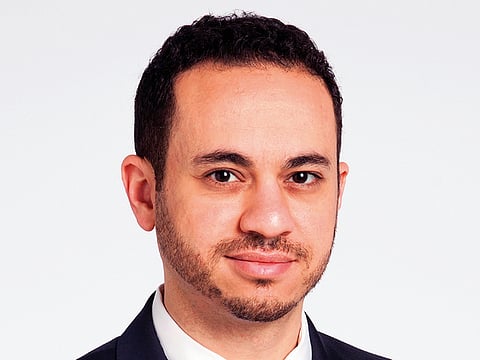Smoking increases cardiovascular risk
Doctors urge residents to quit smoking ahead of World No Tobacco Day on May 31

Abu Dhabi: It is well known fact that smoking greatly increases the risk of cancer, but smokers are often unaware of the many other negative effects brought about by the habit, leading doctors have warned.
In fact, smoking and chewing tobacco are also the second most common cause of cardiovascular diseases, the leading cause of death in the UAE. In addition, they also directly lead to respiratory failure and lung diseases.
“Most people associate cigarette, pipe, and cigar use with breathing problems and lung cancer. But they [remain unaware] of the adverse effects on the heart and other blood vessels,” said Dr Haitham Ahmad, preventive cardiologist at the Ohio-based Cleveland Clinic.
“Cigarettes themselves contain 4,000 different carcinogens and these not only increase cancer risk but also change the ‘essential architecture’ of blood vessels, leading to an increased heart rate and a number of other adverse effects. It is really apt when they say that smokers ‘should never quit quitting’, because there are so many health benefits to be gained from kicking the habit,” added Dr Hatem Ramadan, head of department of respiratory and sleep medicine at Healthpoint Hospital in Abu Dhabi.
The doctors were speaking ahead of World No Tobacco Day, which will be marked internationally on May 31. According to the World Health Organisation, tobacco use accounts for seven million deaths around the world each year, with nearly a million deaths resulting from simple exposure to second-hand smoke.
In the UAE, an average of 27 people are known to die every week from tobacco-related diseases, as reported by the fifth World Tobacco Atlas, which tracks tobacco use trends and effects. In addition, every six out of 10 Emiratis are regularly exposed to second-hand smoke, and such exposure increases the risk of suffering from cardiovascular diseases and lung cancer by 30 per cent.
“Smoking and tobacco use inflames the blood vessels, increasing the patients’ heart rate and narrowing their blood vessels. This not only contributes to cardiovascular morbidity and mortality, but also leads to respiratory failure — a condition in which the body does not receive enough oxygenated blood,” Dr Ramadan explained.
In the short term, this respiratory failure can lead to shortness of breath, fatigue, and reduced stamina. Over time, smokers also suffer from chronic obstructive airway diseases and fibrosis, as well as reduced immunity.
The good news is that a smoker’s heart rate begins to fall within 20 minutes of stopping smoking. Within 12 days, the carbon monoxide levels in the blood drop to normal levels, and blood circulation and lung function improve within two to 12 weeks, Dr Ahmad said.
Within a year of quitting smoking, the risk of coronary heart diseases is reduced to half that of a smoker’s, and coughing and shortness of breath will also have decreased. Within 15 years after quitting, the risk of stroke is the same as that faced by a non-smoker, the risk of cancers are also half that of smokers’.
“There are many long-term benefits, but even the short-term gains are worth giving up smoking for good. But first, patients must have a plan and find a strong reason to quit, then build a support system to effectively quit. Then it is necessary to seek medical assistance and opt for nicotine replacement therapy,” Dr Ramadan added.


